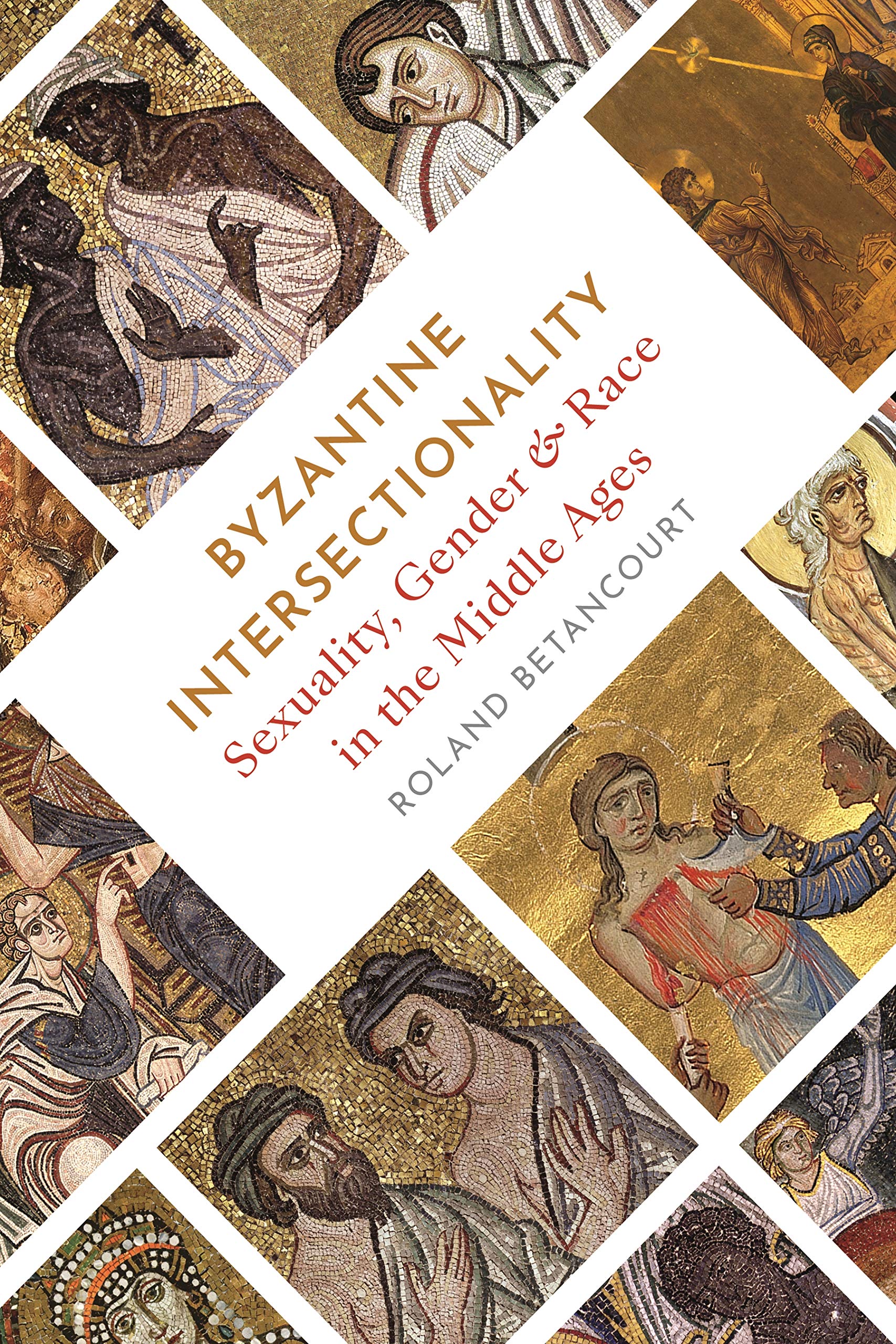
Title

Byzantine Intersectionality: Sexuality, Gender, and Race in the Middle Ages,Used
Delivery time: 8-12 business days (International)
A fascinating history of marginalized identities in the medieval worldWhile the term intersectionality was coined in 1989, the existence of marginalized identities extends back over millennia. Byzantine Intersectionality reveals the fascinating, littleexamined conversations in medieval thought and visual culture around sexual and reproductive consent, bullying and slutshaming, homosocial and homoerotic relationships, trans and nonbinary gender identities, and the depiction of racialized minorities. Roland Betancourt explores these issues in the context of the Byzantine Empire, using sources from late antiquity and early Christianity up to the early modern period. Highlighting nuanced and strikingly modern approaches by medieval writers, philosophers, theologians, and doctors, Betancourt offers a new history of gender, sexuality, and race.Betancourt weaves together art, literature, and an impressive array of texts to investigate depictions of sexual consent in images of the Virgin Mary, tactics of sexual shaming in the story of Empress Theodora, narratives of transgender monks, portrayals of samegender desire in images of the Doubting Thomas, and stereotypes of gender and ethnicity in representations of the Ethiopian Eunuch. He also gathers evidence from medical manuals detailing everything from surgical practices for late terminations of pregnancy to save a mothers life to a host of procedures used to affirm a persons gender.Showing how understandings of gender, sexuality, and race have long been enmeshed, Byzantine Intersectionality offers a groundbreaking look at the culture of the medieval world.
By changing our most important processes and
products, we have already made a big leap forward. This ranges from the
increased use of more sustainable fibers to the use of more
environmentally friendly printing processes to the development of
efficient waste management in our value chain.
⚠️ WARNING (California Proposition 65):
This product may contain chemicals known to the State of California to cause cancer, birth defects, or other reproductive harm.
For more information, please visit www.P65Warnings.ca.gov.
Shipping & Returns
Shipping
We ship your order within 2–3 business days for USA deliveries and 5–8 business days for international shipments. Once your package has been dispatched from our warehouse, you'll receive an email confirmation with a tracking number, allowing you to track the status of your delivery.
Returns
To facilitate a smooth return process, a Return Authorization (RA) Number is required for all returns. Returns without a valid RA number will be declined and may incur additional fees. You can request an RA number within 15 days of the original delivery date. For more details, please refer to our Return & Refund Policy page.
Shipping & Returns
Shipping
We ship your order within 2–3 business days for USA deliveries and 5–8 business days for international shipments. Once your package has been dispatched from our warehouse, you'll receive an email confirmation with a tracking number, allowing you to track the status of your delivery.
Returns
To facilitate a smooth return process, a Return Authorization (RA) Number is required for all returns. Returns without a valid RA number will be declined and may incur additional fees. You can request an RA number within 15 days of the original delivery date. For more details, please refer to our Return & Refund Policy page.
Warranty
We provide a 2-year limited warranty, from the date of purchase for all our products.
If you believe you have received a defective product, or are experiencing any problems with your product, please contact us.
This warranty strictly does not cover damages that arose from negligence, misuse, wear and tear, or not in accordance with product instructions (dropping the product, etc.).
Warranty
We provide a 2-year limited warranty, from the date of purchase for all our products.
If you believe you have received a defective product, or are experiencing any problems with your product, please contact us.
This warranty strictly does not cover damages that arose from negligence, misuse, wear and tear, or not in accordance with product instructions (dropping the product, etc.).
Secure Payment
Your payment information is processed securely. We do not store credit card details nor have access to your credit card information.
We accept payments with :
Visa, MasterCard, American Express, Paypal, Shopify Payments, Shop Pay and more.
Secure Payment
Your payment information is processed securely. We do not store credit card details nor have access to your credit card information.
We accept payments with :
Visa, MasterCard, American Express, Paypal, Shopify Payments, Shop Pay and more.
Related Products
You may also like
Frequently Asked Questions
- Q: What is the main focus of Byzantine Intersectionality? A: Byzantine Intersectionality explores marginalized identities in the medieval world, examining themes of sexuality, gender, and race within the context of the Byzantine Empire.
- Q: Who is the author of Byzantine Intersectionality? A: The book is authored by Roland Betancourt.
- Q: When was Byzantine Intersectionality published? A: Byzantine Intersectionality was published on October 6, 2020.
- Q: What is the binding type of this book? A: The book is available in hardcover binding.
- Q: How many pages does Byzantine Intersectionality have? A: Byzantine Intersectionality contains 288 pages.
- Q: Does the book include discussions on contemporary issues? A: Yes, the book highlights modern approaches to issues like gender identities and racial representation in the medieval context.
- Q: What types of sources does Roland Betancourt use in the book? A: Betancourt uses a variety of sources including art, literature, and medical texts from late antiquity to early modern periods.
- Q: Is Byzantine Intersectionality suitable for academic study? A: Yes, the book is well-researched and provides insights that are valuable for academic discussions on gender, sexuality, and race.
- Q: What themes are explored in Byzantine Intersectionality? A: The book explores themes such as sexual consent, bullying, same-gender desire, and the representation of transgender identities.
- Q: Can Byzantine Intersectionality be used as a reference for modern gender studies? A: Yes, it offers a historical perspective that can enrich contemporary discussions in gender studies and intersectionality.
